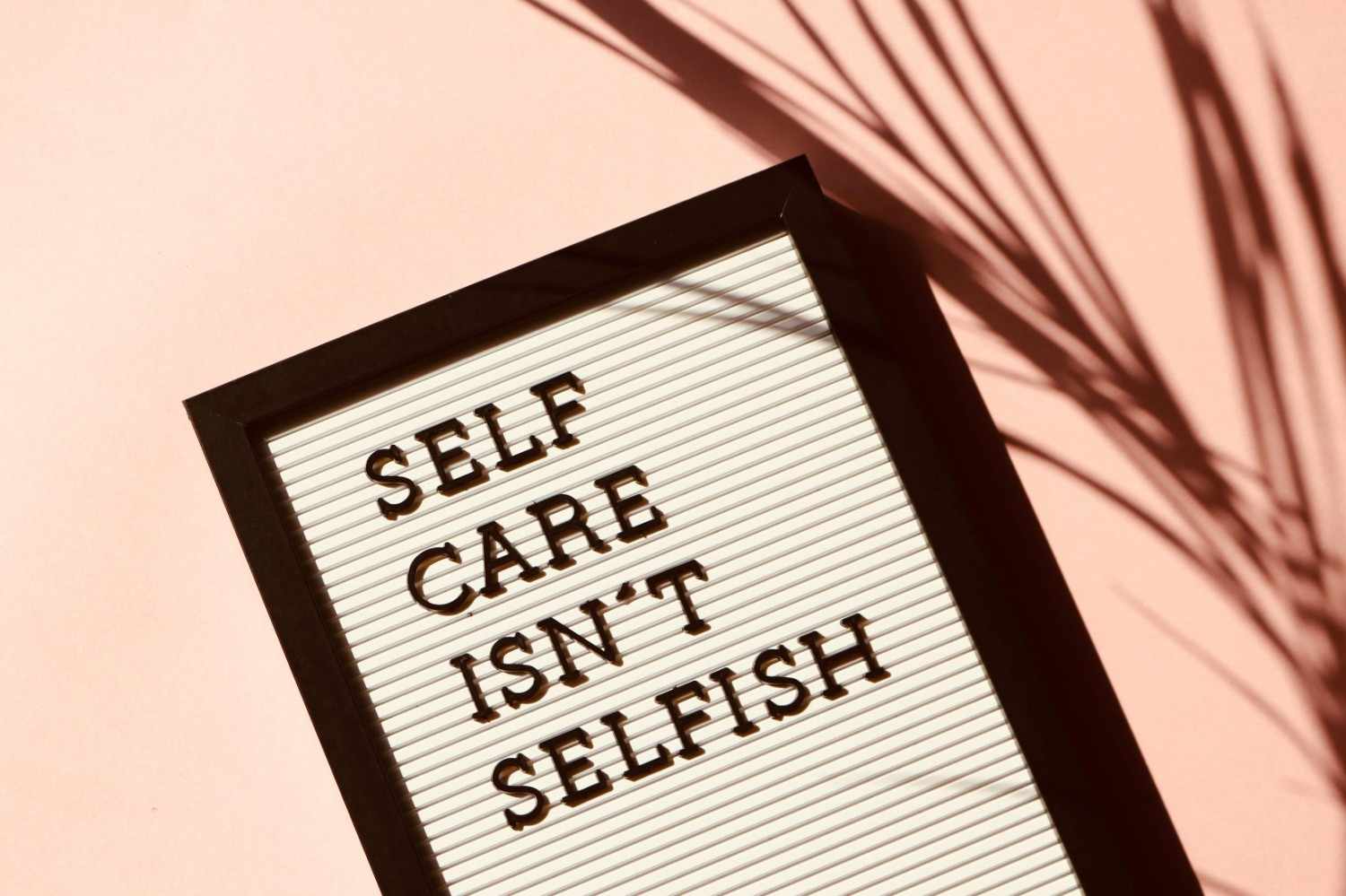For most of our lives, we have been taught a lie: that the key to success and self-improvement is to be our own harshest critic. We believe that a relentless inner drill sergeant is necessary to keep us motivated and in line. But what if this approach is not just ineffective, but actively damaging? The science is clear: self-criticism fuels fear of failure, while "self-compassion" builds the resilience to get back up after we fall. This article is your guide to unlearning the harshness and mastering the gentle, transformative practice of treating yourself with the same kindness you would offer a dear friend.
Key Points
- Self-compassion is not self-pity or self-indulgence; it is the practice of treating yourself with the same kindness and understanding you would offer a good friend when you are suffering, fail, or feel inadequate.
- It consists of three core components, as defined by researcher Dr. Kristin Neff: "Self-Kindness" (being gentle with yourself), "Common Humanity" (recognizing that suffering and imperfection are universal), and "Mindfulness" (observing your pain without judgment).
- Scientific research shows that self-compassion is strongly linked to increased "resilience." It allows individuals to bounce back more effectively from failure and setbacks.
- Unlike self-esteem, which is often based on external validation and comparison, self-compassion offers a stable sense of self-worth that is not dependent on success, making it a healthier foundation for mental well-being.
- Practical exercises like the "Self-Compassion Break," writing compassionate letters to yourself, and actively reframing your inner critic's voice can help you build this skill over time.
Introduction: The Unkindest Voice
Think about the last time you made a significant mistake. Perhaps you missed a deadline, said the wrong thing in a conversation, or failed at a personal goal. Now, pay close attention to the voice that immediately spoke up in your mind. What did it say? For the vast majority of us, that voice was not a gentle coach offering encouragement. It was a harsh, relentless critic, a voice of judgment that likely said something like, "How could you be so stupid?", "You always mess everything up," or "You are such a failure."
We would never dream of speaking to a friend in this manner, yet we allow this internal monologue of shame and criticism to run on a constant, punishing loop. We have been conditioned to believe that this harshness is necessary, that it is the engine of motivation and the only thing preventing us from becoming lazy and complacent. But a growing body of psychological research reveals that this belief is not only wrong, it is profoundly counterproductive. The true source of strength, resilience, and sustainable motivation is not self-criticism, but its gentle and powerful counterpart: "self-compassion." This article, by psychologist Dr. Anya Sharma, is your guide to this transformative practice. We will explore what self-compassion is (and is not), the science behind its power, and provide practical, step-by-step exercises to help you unlearn the habit of self-flagellation and cultivate a kinder, more supportive relationship with the most important person in your life: yourself. All information is current as of Wednesday, October 1, 2025 at 6:53 AM GMT from Kumasi, Ashanti Region, Ghana.
What is Self-Compassion? Deconstructing the Three Pillars
The leading expert in the field, Dr. Kristin Neff, defines self-compassion as extending compassion to oneself in instances of perceived inadequacy, failure, or general suffering. It is not about letting yourself off the hook or ignoring your mistakes. It is about changing how you "relate" to yourself in those difficult moments. Instead of meeting your pain with judgment, you meet it with kindness. This practice is built on three core pillars.
1. Self-Kindness vs. Self-Judgment
This is the most intuitive component. Self-kindness means being gentle, supportive, and understanding with yourself when you are hurting. It is the active choice to soothe and comfort yourself rather than berate yourself. The inner critic thrives on judgment, creating a cycle of shame that makes it harder to learn from our mistakes. Self-kindness breaks this cycle. It allows you to say, "This is really hard right now," or "It is okay that I made a mistake," creating an internal environment of safety where true growth can occur. It is the direct antidote to the patterns we discussed in Overcoming Negative Self-Talk.
2. Common Humanity vs. Isolation
When we fail or feel inadequate, our immediate instinct is often to feel isolated. We think, "What is wrong with 'me'?" and "I am the only one who struggles like this." This feeling of separation is a profound source of suffering. Common humanity is the antidote. It is the conscious recognition that suffering, failure, and imperfection are not personal defects; they are a fundamental part of the "shared human experience." Everyone makes mistakes. Everyone feels insecure. Everyone suffers. By remembering this, you reframe your personal pain. It is no longer a sign that you are uniquely flawed, but a reminder of your connection to everyone else. This perspective moves you from a state of "poor me" to "we are all in this together."
3. Mindfulness vs. Over-Identification
Mindfulness, in this context, is the practice of observing your negative thoughts and emotions with openness and clarity, without being consumed by them. It is about taking a "balanced" approach to your feelings. Often, we either "suppress" our pain ("I'm fine, this is nothing") or we "over-identify" with it, allowing a single negative feeling to become our entire reality (the "drama queen" effect). Mindfulness creates a middle path. It allows you to acknowledge your pain without judgment: "Okay, I am feeling a lot of shame right now. It is a painful sensation in my chest." By observing the feeling instead of becoming the feeling, you rob it of its power to control you. You can see it for what it is: a transient mental event, not a permanent truth about who you are.
The Unfair Fight: Self-Esteem vs. Self-Compassion
For decades, the cultural focus has been on building "self-esteem." While having a positive self-view is beneficial, the way we typically pursue self-esteem has a significant dark side. Self-esteem is often a "judgment" of our self-worth. It is contingent on our successes and how we measure up to others. It asks, "Am I good enough?"
This creates several problems:
- It is Unstable: Your self-esteem can be sky-high when you get a promotion and plummet when you face criticism. It is a fair-weather friend that deserts you precisely when you need it most, in moments of failure.
- It Breeds Narcissism: To feel good about ourselves, we often have to feel "better than" others. This constant social comparison can lead to arrogance, prejudice, and an inability to healthily process criticism.
- It Can Lead to Denial: To protect our fragile ego, we might refuse to look at our own mistakes and weaknesses, blaming others instead. This makes genuine personal growth impossible.
Self-compassion, on the other hand, is not a judgment of your worth; it is a "relationship" with yourself. It is a way of being with yourself that is consistently kind and supportive, regardless of your performance. It asks a different question: "How can I be kind to myself in this moment?" Research by Dr. Neff and others consistently finds that self-compassion offers the benefits of high self-esteem, such as optimism and happiness, but with "fewer of its downsides," like narcissism and social comparison. It is a stable, unconditional source of inner strength.
The Science of Kindness: How Self-Compassion Builds a Resilient Mind
The benefits of self-compassion are not just feel-good platitudes; they are backed by a robust and growing body of scientific evidence. This practice physically and psychologically equips you to handle life's challenges more effectively.
One of the most significant findings is its direct impact on "resilience." A 2018 meta-analysis confirmed that self-compassion is a powerful protective factor against the stress of failure. When self-compassionate individuals fail, they are less likely to be consumed by negative emotions. Because they are not afraid of the harsh self-criticism that usually follows a mistake, they are more willing to take on new challenges and persist in the face of setbacks. They can look at their failure, learn from it, and try again, rather than becoming paralyzed by shame. This directly supports the work of Overcoming Self-Doubt.
Furthermore, the practice of self-compassion has a direct effect on our physiology. When we engage in harsh self-criticism, our body goes into "threat defense mode." It releases cortisol and adrenaline, the same hormones that are released when we are being chased by a predator. This puts us in a state of fight-or-flight, which impairs our ability to think clearly and solve problems. In contrast, when we practice self-kindness, we activate the body's "self-soothing system." This system releases oxytocin and opiates, hormones that create feelings of safety, connection, and well-being. This calms us down and puts us in the best possible state of mind to learn, grow, and move forward.
A Practical Toolkit for a Kinder Inner World
Like any skill, self-compassion requires practice. Here are a few evidence-based exercises to help you begin.
1. The Self-Compassion Break
This is a quick, in-the-moment practice you can do anytime you are feeling stressed, overwhelmed, or are in the midst of self-criticism. It directly engages the three pillars of self-compassion.
- Step 1 (Mindfulness): Acknowledge your pain. Say to yourself, either out loud or in your mind, "This is a moment of suffering." or "This hurts." This simple act of naming the feeling brings mindful awareness to it.
- Step 2 (Common Humanity): Remind yourself that you are not alone. Say, "Suffering is a part of life." or "Everyone feels this way sometimes." This connects you to the shared human experience.
- Step 3 (Self-Kindness): Offer yourself a gesture of kindness. You can place your hands over your heart, give yourself a gentle hug, or just say some kind words, such as, "May I be kind to myself in this moment." or "May I give myself the compassion I need."
2. Writing a Compassionate Letter
This exercise helps you access your own compassionate voice by externalizing it.
- First, think of an aspect of yourself that you dislike or a mistake you are ashamed of. Feel the difficult emotions that arise when you think about it.
- Now, imagine a friend who is unconditionally loving, wise, and compassionate. Write a letter to yourself "from the perspective of this friend." What would they say to you about this flaw or mistake? They would likely express compassion, remind you of your good qualities, and offer gentle, supportive advice.
- Put the letter away for a little while, and then come back and read it, allowing yourself to receive the kindness and compassion.
3. Changing Your Critical Self-Talk
This is the ongoing practice of catching your inner critic in the act and actively reframing its language.
- Notice It: The first step is to simply become aware of when you are being self-critical.
- Soften It: You do not have to jump directly to positive affirmations. Start by simply softening the critical voice. For example, if the voice says, "You are so lazy," you can soften it to, "You are having a really hard time finding motivation today."
- Reframe It: Now, reframe the statement from a compassionate perspective. "You are clearly feeling tired and overwhelmed. It is okay to rest. What is one small, gentle step you could take?" This transforms the inner critic into a supportive inner coach.
Conclusion: The Warmth of Your Own Welcome
Learning self-compassion is like coming home to yourself after a long and difficult journey. It is the radical act of deciding that you are worthy of kindness, not just when you succeed, but especially when you fail. It is the understanding that being a flawed, imperfect human being is not a personal failure, but a universal truth. By practicing self-kindness, remembering our common humanity, and holding our struggles in mindful awareness, we can transform our inner world from a harsh battlefield into a safe and welcoming sanctuary.
References
- Dr. Kristin Neff's Website - The primary resource for research, exercises, and information on self-compassion.
- "Self-Compassion: The Proven Power of Being Kind to Yourself" by Kristin Neff, Ph.D.
- Psychology Today - Self-Compassion
- Positive Psychology - 24 Self-Compassion Exercises and Worksheets
- Greater Good Science Center at UC Berkeley - Kristin Neff, Ph.D.
- "Self-Compassion and Reactions to Unpleasant Self-Relevant Events: The Implications of Treating Oneself Kindly" - A study by Leary, Tate, Adams, Allen, and Hancock (2007) that demonstrates how self-compassion helps people cope with failure.
- Dr. Kristin Neff - The Dangers of Self-Esteem - An article by Dr. Neff explaining the research on why self-compassion provides a more stable sense of self-worth than self-esteem.








